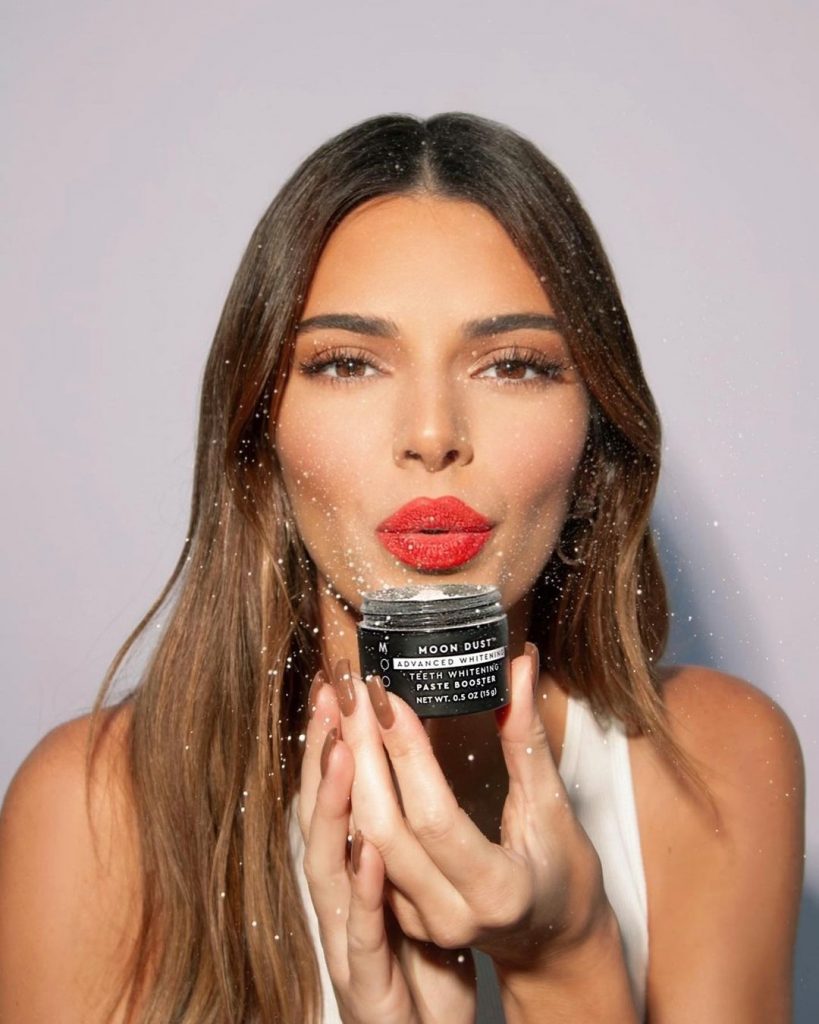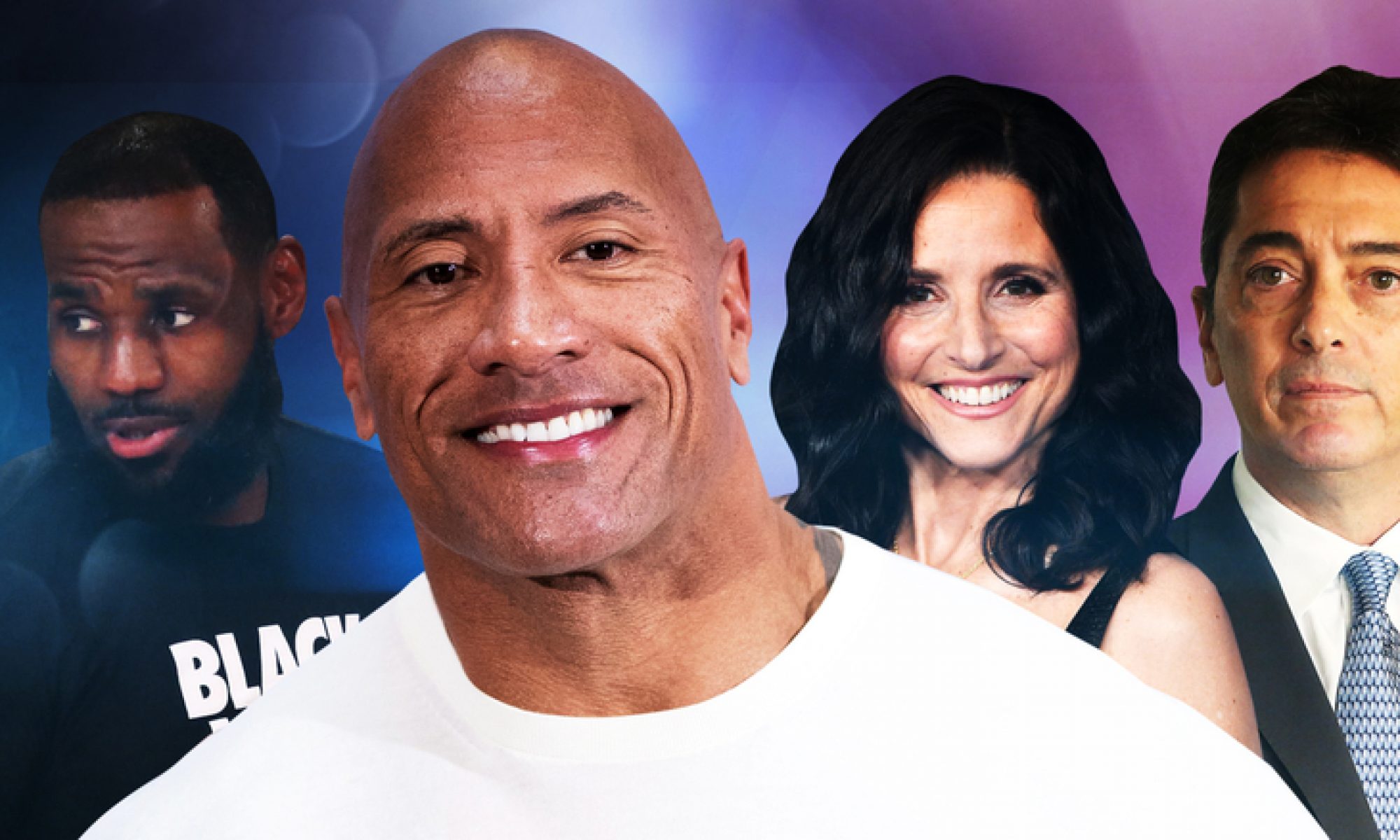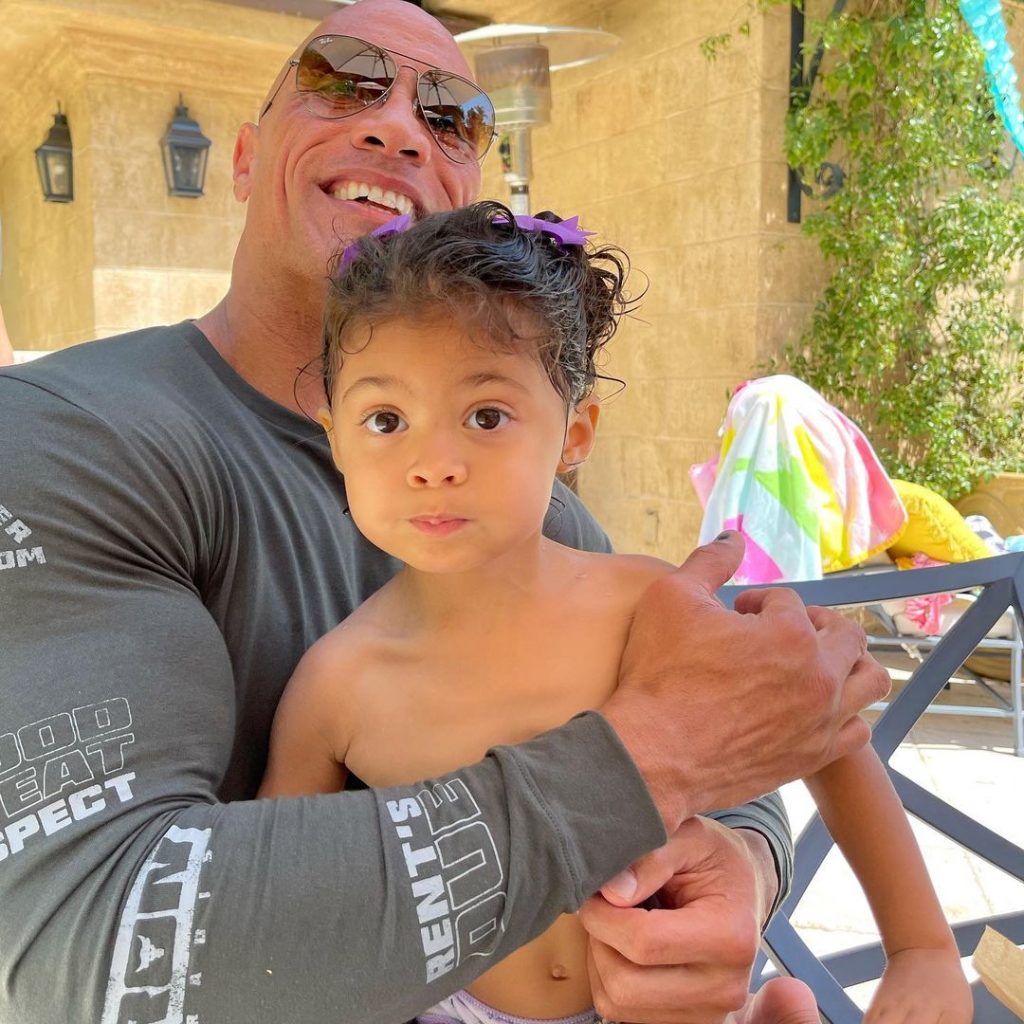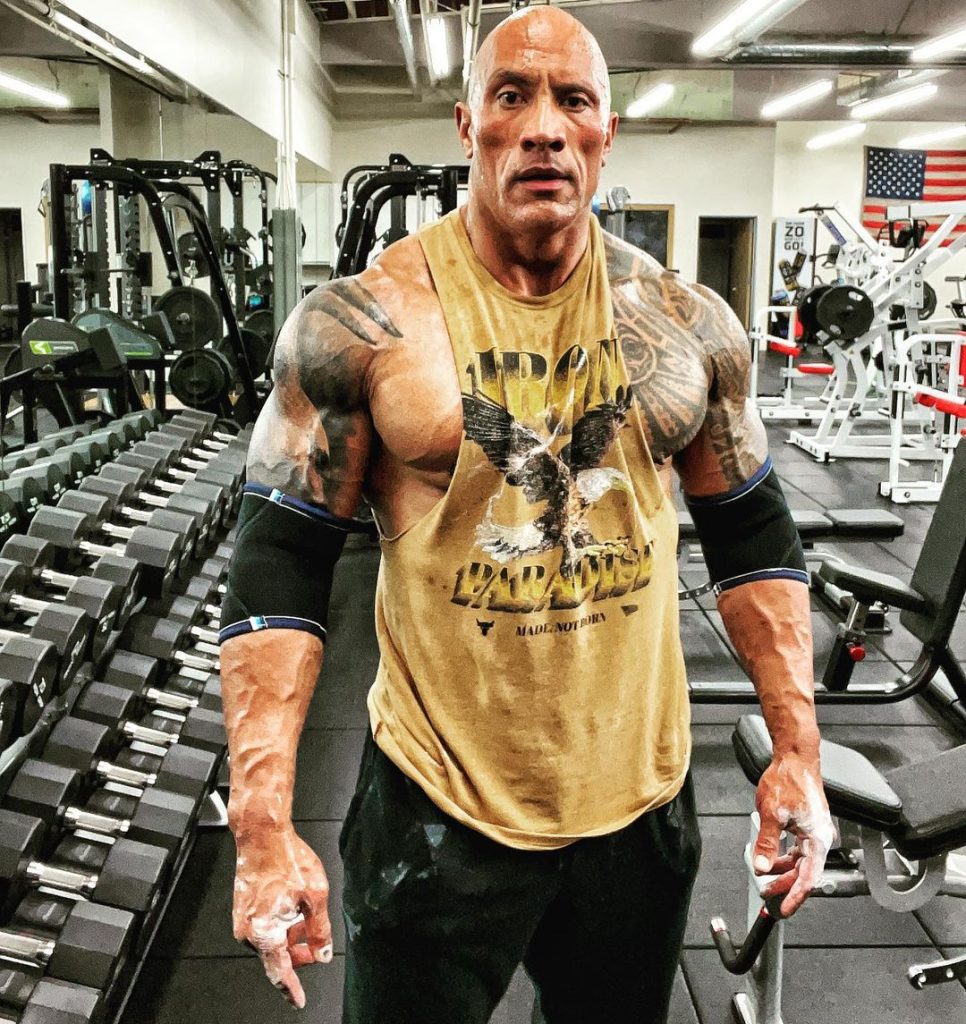Dwayne “The Rock” Johnson has been known to keep his opinions to himself, a trait that likely led to him winning the title of “most likeable person in the world” from The Profile, a publication that covers the successes of businesses and personas.
On September 27, 2020, however, he became less liked by quite a few Americans when he endorsed the presidential ticket of Joe Biden and Kamala Harris on all of his social media platforms.
“As my first ever (public) Presidential endorsement, I proudly endorse [Biden and Harris] for the presidential office of our United States,” he wrote, urging his fellow citizens to vote similarly. After the viral frenzy his multi-platform posts caused, Johnson gained upwards of 600,000 followers on Instagram, according to monitoring tool Crowdtangle. Although his follower base seemed to increase on Instagram, he also gained some haters, especially on Twitter.
“What the Rock did was interesting,” said Henry Jenkins, an expert on Popular Culture, Social Media and Politics at the University of Southern California. “He’s not immune to having people dislike him, but he has a certain amount of Teflon coating there.”
Celebrities have long captured American hearts in movie theaters, on television screens, and they also may have some hold on our minds, appearing to stake a claim to a good chunk of real estate in our brains. The presence these people of privilege, fame and wealth seem have in our lives is only growing as we listen to their daily, unedited musings coming straight at us through apps on our phones.
Even the people we think of as “traditionally” powerful may not have the reach of major celebrities. For example, Speaker of the House of Representatives Nancy Pelosi (@speakerpelosi), third in the line of presidential succession, has 1.4 million followers on Instagram. Jeff Bezos (@jeffbezos), CEO of Amazon and one of the world’s richest people, has 2.7 million Instagram followers.
The Rock has 224 million followers. Singer Selena Gomez has 217 million. Aside from @instagram (the platform’s own account), the person with the highest Instagram following is Cristiano Ronaldo, the captain of Portugal’s national soccer team, with 271 million.
“I feel like I know we can know so many celebrities’ places on the political spectrum from just looking at their feed,” said Sari Bochner, a 21-year-old student at Binghamton University.
Social media users consume celebrity opinions so frequently that most don’t even appear to notice it. The process of unlocking an iPhone, hitting the Instagram icon and tapping on Chrissy Teigen’s ‘story’ takes half a second at most.
“It’s almost robotic,” said Dani Hoppenheim, a 19-year-old student at the Parsons School of Design in Manhattan. “It’s like before I know it, I’m watching Kim Kardashian’s kids eat lunch.” Aside from the everyday life updates, she said, there’s usually an activism-focused infographic sprinkled throughout the compilation of Stories. But she said reality sometimes intrudes. “These days, I’ll see an anti-Asian hate post tossed into the mix,” added Hoppenheim.
Bochner and Hoppenheim are childhood friends that run an Instagram account and podcast all about pop culture, celebrity news and growing up in the digital age. They told me they originally intended to keep politics out of the topics they cover, but it feels impossible not to mention something political every once in a while.
“We first said something to memorialize Ruth Bader Ginsburg this fall,” said Bochner, recounting the passing of a childhood hero of hers. “And when the hearings started up to find a replacement,” Hoppenheim jumped in, “we felt obligated to express how upset we were.”

In fact, political conversation seemed to dominate 2020, from the COVID-19 pandemic to a resurgence of the Black Lives Matter movement to incredibly consequential elections on the state and national levels. Those conversations seemed unavoidable and more pressing than ever, and celebrities were speaking out on the issues and people that seem to have polarized our nation more than ever before.
“This is a comparatively recent thing,” said Leo Braudy, a Professor at the University of Southern California who specializes in fame and celebrity. “After World War II, with the blacklist in Hollywood, people shied away from political interventions. It wasn’t revived until really, Vietnam with people like Jane Fonda and Donald Sutherland doing anti-war things.”
Since the Vietnam War, the power of celebrity has grown quite a bit due to technological innovations.
In 2008, David Jackson, a political scientist at Bowling Green State University, wanted to know more about the political impact that celebrities have on young voters. Jackson found that celebrities are influential with their audience when it comes to political leanings, especially when they are viewed as credible. Specifically, he found that Zack de La Rocha, a member of the punk band Rage Against the Machine, was known by his fans as an “activist.” His “long-term commitment to politics and activism may influence his young fans to believe [him],” said Jackson, “when he has something to say about politics, it ought to be taken seriously.” On the other side of the political spectrum, country singer Tim McGraw “may also bring credibility to the issue of government farm assistance,” according to Jackson, given that he’s from Louisiana and has a rural upbringing.
When these celebrities position themselves as knowledgeable about a certain topic, they create the perception of credibility, perhaps lending to a greater impact on fans. In his research findings, Jackson notes that “young people’s adherence to certain political beliefs may in some cases be strengthened by their endorsement by celebrities.” This isn’t a surprise, as communication scholars have been researching Source Credibility Theory for years. Created in 1953 by theorists Janis, Hovland and Kelley, Source Credibility Theory states that people are more likely to be persuaded when the source presents itself as credible. Thinking back to Jackson’s example of Zach de la Rocha, it makes sense why his fans are more likely to be influenced by his opinions given the fact that he’s proven his longstanding dedication to political activism.
This is certainly the case with Yara Shahidi. The actress often shares resources, lessons and insight into systemic racism in America and preaches support for the Black Lives Matter movement. Between a grandfather who spent time working with the Black Panthers, a mother who impressed social justice upon her, and her own consistent activism initiatives, many people could consider her a reliable source of information on matters relating to Black empowerment.
Shahidi is one of Dani Hoppenheim’s new favorites. The Grown-ish actress has become a role model for her because Hoppenheim said she continuously stands for causes she also believes in and exemplifies hard work and female empowerment. “I started to realize how much I absorb from my Instagram feed, so I’ve made a point to follow accounts that make me feel good and teach me something,” Hoppenheim said.
But what about the Rock? After not speaking about politics or controversial topics for almost the entirety of his time in the spotlight, how come he’s named as one of the most trusted individuals when it comes to political and social issues? In a survey done by Whitman Insight Strategies, that polled people across the United States and from all political affiliations, 45 percent named the former WWE wrestler and actor as having a trustworthy political opinion. Why?
Perhaps it’s because we feel a sense of connection to him.
“There’s certainly some degree of intimacy there,” said USC’s Jenkins. Johnson’s 223 million followers share breakfast and his workout routine with him. They get to be with him virtually as his young daughter learns to speak to his millions of followers. And that’s just one day’s worth of posts.
“There’s a sense that people are letting down their hair that makes the fans feel like there’s a special connection there,” said Jenkins. “These stars are bigger than life but also part of everyday life. It’s this tension that gives them a particular relevance.”
This relevance is key to forging a relationship with fans, a concept symbolized with verification on social media. Roughly three percent of Instagram accounts are verified, according to research done by HypeAuditor, an influencer marketing analytics software. These 6.5 million accounts have a 30 percent higher engagement rating than non-verified users. This means that verified users, or “public figures, celebrities and brands” that Instagram deems “authentic” and “professional,” stir up more conversations and create more buzz than the layperson.
Jenkins described activity on social media as part of these celebrities’ work. They create a fan following on their social channels that is so strong and will effectively mobilize them to seek out and support their creative endeavors. “It requires a constant flow of messaging, and it’s no shock that political messaging is involved in that.”
Dr. Dora Kinglsey Vertenten, a professor at the USC Sol Price School of Public Policy, thinks of it more from the layperson perspective. When we see the celebrities that we follow post about voting, or even who they’re voting for, “it gives permission to people to do things they might not have thought was okay,” said Kingsley Vertenten. Especially when it comes to politics, she said we often “need to know somebody else [we] look up to give permission to do something that you might have otherwise had a hard time accepting.”
According to Dr. Kingsley Vertenten, the best way to truly grasp the influence of celebrities is by using marketing data. She explained that the concept of sponsorship remains relatively the same, whether it’s an influencer showing off their fashion trends in a collaboration with H&M or a celebrity endorsing a political candidate or movement. And don’t be fooled — these sponsored posts are not just silly advertisements with minimal return on investment. As the Journal of Interactive Advertising puts it, “influencer-produced branded content is considered to have more organic, authentic, and direct contact with consumers than brand-generated ads.” These people that we’ve developed a sort of complex intimacy with consume a large part of our days and as we think we are getting to know them, we start to add real weight to their words.

“One way we now see celebrities voicing their political interest is through bipartisan encouragement to get to the polls,” said Kingsley Vertenten. During the 2018 midterm elections, Taylor Swift wrote a post on her Instagram to encourage her fans to get out the vote, which resulted in a massive spike in voter registration to 102,000 people in just 48 hours, but also plenty of flak from Fox News. Whether we realize it or not, celebrities’ opinions matter deeply to the way our political system and society operate. The key word here is system. Kingsley Vertenten said that the overwhelming issue we’re seeing as a country is “not in terms of the political party, but the simple action of getting to the voting booth.”
Kingsley Vertenten points out that merely posting a message calling for all people of any party to vote and take part in our democracy is now see as somehow leftist or Democratic. While efforts to suppress the vote are now often seen as right-wing or Republican values. With something so basic as the act of voting becoming a partisan issue, it can feel like most people have a strong opinion. Especially online.
As we look to the future, Kingsley Vertenten sees the lines between celebrity and politics blurring more and more. “We’ve become a celebrity culture,” she said. Celebrities and politicians feel like one in the same, especially with people like Caitlyn Jenner on the ballot for governor in California. Conversely, we’ve also glorified our politicians; young people feel a deep devotion for figures like Alexandria Ocasio Cortez and Jon Ossoff. The boundary between these two sectors is starting to disintegrate.
Though this may make government sound superficial, Kingsley Vertenten actually feels hopeful looking ahead. She, like many others, have high hopes for Gen Z in the ways they’ll make a change in our world. “Now, it feels like everyone was raised doing community service,” she said. She believes the next generation will be fascinating, empowered young change-makers, regardless of their devotion for popular culture.




